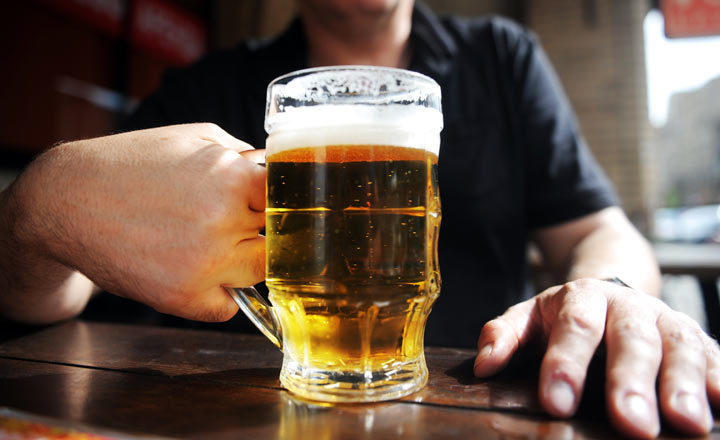TORONTO – New research may provide a silver lining to all the New Year’s Eve designated drivers: U.S. scientists suggest that binge drinking takes a toll on your immune system, at least while you’re drunk.

There’s the impaired judgment and the nasty hangover, but Loyola University doctors in Chicago say that heavy drinking “significantly disrupts” the immune system, even in healthy 20-somethings.
The researchers say alcohol’s effect on behaviour is universally known, but its link to our immune system health isn’t well-documented.
READ MORE: Alcohol without the hangover? This scientist is testing booze without the nasty side effects
For their study, the researchers recruited young, healthy volunteers who were about 27 years old on average. They drank four to five shots of vodka depending on their weight.
(A 1.5 ounce shot of vodka is the equivalent of a 5 ounce glass of wine or a 12 ounce can of beer in alcohol content, the study notes.)
Just 20 minutes after they hit the peak point of intoxication, the participants’ immune systems revved up. Based on blood samples, the researchers saw higher levels of three types of blood cells that are crucial to a strong immune system. Their bodies also pumped out increased levels of proteins that tell the immune system to ramp up.
But at the two-hour and five-hour mark, their immune systems took a steep dip – they were less active than when sober. It was the opposite – blood cells that signal the immune system to slow down flooded in.
- ‘She gets to be 10’: Ontario child’s heart donated to girl the same age
- Bird flu risk to humans an ‘enormous concern,’ WHO says. Here’s what to know
- Shoppers faces proposed class action over claims company is ‘abusive’ to pharmacists
- Most Canadian youth visit dentists, but lack of insurance a barrier
READ MORE: Do you have the binge drinking gene? Scientists suggest some prefer alcohol more than others
Binge drinking is defined as drinking enough to reach a blood alcohol content of 0.08 per cent. In a woman that typically happens after four drinks; in a man about five consumed within two hours.
The doctors aren’t necessarily surprised by their findings. They point out that heavy drinking increases the risk of falls, burns, gunshot wounds, car accidents and other traumatic injuries. A third of trauma patients that turn up in hospital have alcohol in their systems.
The scientists say that binge drinking also stalls the body’s ability to recover from these injuries. In past research, binge drinking slowed down the healing of wounds, speeds up blood loss and makes sick patients vulnerable to pneumonia and other infections.
Their next steps are to look at patients with burns and how alcohol affects their recovery.
The Loyola University study was published in the journal Alcohol.
But if you are ringing in the New Year with a glass – or five – of champagne, experts are also doling out tips to counter a nasty hangover.
For starters, stay hydrated.
“Water can certainly help the next day because it can rehydrate you, but you’re going to get the most benefit from something with a little bit of electrolytes,” according to Julia Zumpano, a Cleveland Clinic registered dietitian.
READ MORE: Alcohol advertising linked to ‘increased’ drinking in adolescent girls, Canadian doctor warns
When you’re dealing with a hangover, your body is dehydrated and in need of electrolytes, potassium and sodium, she said.
Reach for a banana, a sports drink or a glass of coconut water.
You should also stock up on foods that are rich in B6 – salmon, turkey, chicken and pistachio nuts, for example.
If you have a queasy stomach, ginger could decrease nausea, Zumpano suggests.
carmen.chai@globalnews.ca
Follow @Carmen_Chai




Comments